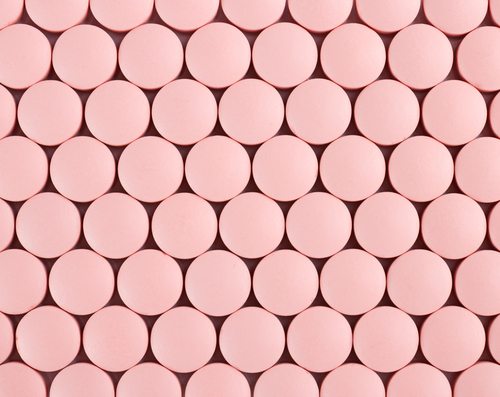
By the end of this summer, the Food and Drug Administration is (once again) expected to decide on whether or not to allow the first “pink Viagra” pills to be marketed in the United States. This will be the third time that the drug, flibanserin, has been brought before the FDA since 2010, when its approval was unanimously voted against by the agency.
Nicknames can be misleading.
Who hasn’t heard of Viagra, right? One of the most widely known prescription drugs of all time, it was initially developed in the early 90’s as a medication designed to treat Angina and high blood pressure by inhibiting the tendency of blood vessels to constrict.
Because it was found to amplify the effects of nitrate medications commonly taken by patients suffering from those conditions, causing very dangerous drops in blood pressure (among other things), it was deemed inappropriate for use in this way.
The cost of development did not go to waste however, as researchers for the manufacturer found an unexpected new use for the drug while reviewing all of the side effects reported during the trials. Luckily for Pfizer, it seems that not only did patients report unpleasant things like muscle aches, dizziness and nausea, but males reported increased instances of erection for days after the initial dose.
Everyone knows what happened after that – doctors started successfully prescribing it to otherwise healthy men who were experiencing difficulty achieving or maintaining erection.
This condition is commonly known as E.D. or Erectile Dysfunction, meaning that the guys who take the pill have a desire to engage in sexual activity, but getting the message to their genitals has been a problem.
To say it rose quickly (insert tasteless arousal jokes here) in popularity is a huge understatement, as it turned into a phenomenal moneymaker, raking in roughly $1.6 billion annually.
So what is female Viagra?
Flibanserin, like Viagra, was also initially being developed for another purpose when the manufacturer decided that it would be more profitable to market it as a sexual arousal drug instead. That however, is pretty much the only similarity between the two.
Unlike Viagra, which works to open blood vessels and increase the flow of blood to the genitals, flibanserin’s target is a woman’s brain. Because it was originally intended to be sold as an antidepressant, the drug’s job is to alter the levels of important neurotransmitters – raising norepinephrine and dopamine, while lowering others, like serotonin (the one responsible for maintaining overall feelings of well-being).
HSDD can take a number of forms, i.e.: an overall or general lack of desire, or a lack of interest in sexual activity with a current or longtime partner, and it can come on either suddenly or gradually over time. It can also simply refer to a lifelong lack of interest in sex.
Simply put, the women may wish they wanted to engage in sexual activity, but they just don’t.
Is there a need for a drug to ignite sexual desire in women?
That is a really great question, and one that has been debated a lot in recent years. Because sexual desire in women is such an inherently intricate and complicated issue, how can anyone say that there is a single drug that can address all aspects of it?
Maybe even more importantly, wouldn’t it be better to analyze the factors that might have led to a decrease in desire before asking your doctor for a pill to sweep them under the rug?
In their recent LA Times Op Ed they write that “No diagnostic test has identified any biological cause – brain, hormone, genital blood flow – for most women’s sexual problems.” Hmmm…
What are the risks?
Naturally, when news of this drug coming back in front of the FDA for the third time surfaced, it opened up some valid areas of concern, so if you know anyone who is considering this drug or is just curious about it, please share:
Concern #1: Side Effects. As with any new drug, side effects are always a primary concern. For flibanserin, known side effects include:
- Low blood pressure
- Dizziness
- Fainting
- Headaches
- Fatigue
- Anxiety
I stress the word known because, just as with any brand new drug, study times and patient populations are limited, so there is really no good, long term science to draw upon.
Even though there are only a handful of side effects in this list, there will almost certainly be additions should it be widely prescribed over a period of, say a decade or more.
For example, we know now that the side effects of Viagra are far more numerous than initially thought when the drug was first approved by the FDA. A search of WebMD reveals well over a hundred moderate and severe side effects including (but not limited to) abnormal liver function, bleeding in the lungs, and complete stoppage of the heart!
While I am not suggesting that the side effects for flibanserin would be the same, given that they are such highly dissimilar drugs, I think it would be a mistake to take any of the ones that are already known lightly.
Concern #2: Daily dosage. Unlike Viagra, ADDYI™ is not merely something you would need to take an hour or so prior to planned sexual activity. Instead, this drug has to be taken daily.
Remember, its job is to alter the body’s levels of neurotransmitters, so it can take weeks for it to achieve the necessary level in the system before results are even detected. Furthermore, in order to maintain those levels, it is necessary to remain on a daily treatment regimen.
Concern #3: Increased dependency on externalized methods of coping. More and more, Westerners are being ‘sold’ on their own wellness and well-being. When we take something as intricate and nuanced as a woman’s cycle of sexuality and reduce it to a “diagnosis,” we are almost certainly doing ourselves a gross injustice.
A host of other factors come into play, such as stress, fatigue, emotional state, self-image and confidence.
A woman’s sexuality is not a switch that can be flipped on, rather she needs courtship, flirtation, some mystery, and freedom to express her individuality.
Concern #4: Effectiveness. This is, coincidentally, the same concern that the FDA has had with this medication, and one reason it was rejected in the past. In testing, results revealed that women reported only .5 – 1 more satisfying sexual events monthly than they were having prior to taking the pills.
This is hardly the type of overwhelmingly positive result you would expect from a drug you must take on a daily basis.
Shouldn’t we try asking what makes a woman feel sexy before we put her on a pill to make her sexy?
Life can be stressful, and it is easy to get bogged down in the daily grind. It is hard to feel sexy while juggling work, bills, home, family, worries and day to day responsibilities.
What was once a shared dream can all too commonly turn into a slowly, almost imperceptibly deepening rut, and once in it, it can be hard for anyone to see a way out.
Add to this the normal fluctuations in our own moods, energy and hormone levels, and a sexual lull period of “not tonights” can shift into longer and longer stretches of asexuality before you know it.
For some it can start with just an unexplained couple of extra pounds – not that much, but too much for your prettiest outfits to fit right.
Believe it or not, something as simple as this can be a turning point for many women who will tell themselves that they will not buy anything new until they can get back into a certain size.
Mentally punishing themselves won’t do anything to boost feelings of self-esteem or self-love, instead it creates additional stress and merely reinforces the “I am not sexy” message, often leaving the rejected partner scratching his head.
How does a girl go about getting her groove back?
1) Make yourself a priority! You came into this world the most perfect version of you the universe has ever known, and you must let that message permeate every cell of your body.
Set aside a few minutes each day for your own quiet, centering meditation. This is the time for you to reconnect with yourself on a deeper level.
2) Take a closer look at the foods you are eating. Would it surprise you to know that some foods can actually enhance your natural sensuality?
Of course, we know that there are foods that can have a negative effect on our mood and energy levels, like processed foods, foods high in sugars, salt or animal fats, so it makes sense that there would be foods and spices that naturally boost the libido as well.
Sometimes, our rushed and hectic lifestyles can really take a toll on our eating habits, making it difficult for us to get even the necessary daily nutrition to feel our best, and we find ourselves eating whatever is quick, easy, or there.
This is the perfect time to introduce the Glowing Green Smoothie® into your diet. In one delicious drink, you get the fuel to not only lose unwanted weight, but to rejuvenate your skin, fight aging, cleanse your digestive system, enhance your natural beauty, and increase your energy levels!
It’s so easy, it’s so simple, and it has worked for all my clients, from Hollywood stars to busy moms and schoolteachers.
If you are someone who does everything for everybody else, it is that one special thing you can do each day just for you.
3) Step outside of the box. Try some brand new things that will connect you with your true and amazing potential. This is great advice for everyone!
*Consider this thought for a moment – let it seep down into your bones: If you were to live to be a hundred years old, you would still never know all of the things you are capable of!
Try a beginners’ dance fitness class to get back in touch with your ability to express yourself through movement. You don’t have to know anything about dancing, and you don’t have to be into fitness to start, just as long as you commit to having fun and you are open to surprising yourself!
Or maybe you are feeling a little more adventurous, and you would rather learn belly dancing, or even pole dancing?
Yoga is another great way to get in touch with your body, not just physically, but also mentally and spiritually, bringing you to a new level of awareness and awakening you to the worlds of confidence and beauty that lie within.
If your partner is willing to practice alongside you, it can be a very powerful way to reestablish and deepen the delicate interpersonal connection which can get lost in day to day living.
4) Therapy. Lack of interest in sexual activity can stem from a host of different sources – from a past negative experience, negative emotions surrounding intimacy, physical discomfort and stress to issues like trust, or simply not feeling in sync with your partner anymore.
Therapy with a qualified practitioner is a chemical free way to rediscover the vivacious, sensual part of your natural self. A skilled, qualified therapist doesn’t change who you are or alter your brain chemistry. He/she will simply help you get in touch with that well of clarity, confidence, and wholeness that resides within each one of us. There are so many different kinds, so explore one that vibes with you.
If you, or someone you know is experiencing problems that should be discussed with a doctor or care provider, please make an appointment as soon as possible.
We know our own bodies best, so getting necessary medical attention and partnering with your doctor whenever you notice dramatic changes is an important part of responsible self-care, and should be part of your personal commitment to yourself. At the same time, be sure to check in with your emotional, mental and spiritual side and remember that needs as much nourishing as well.
With Love and Gratitude,
Kimberly
Question:
What makes you feel sexy and seductive? Can you think of 3 things that you haven’t done in a while, and put them on the top of your priority list? Check back in with yourself in a week and note your results.





Wonderful article! I agree with all the information mentioned. I used similar techniques with my clients when I was health coaching and it worked! Please disregard the first person’s comment as its on the verge of being rude and not appreciative of the work it takes to write an article and do all the research for it. All the best, I’m your new fan!
Thanks Kimberly–your posts are always very informative and tackle, from a very balanced perspective, difficult topics. I appreciate the information and all you do!